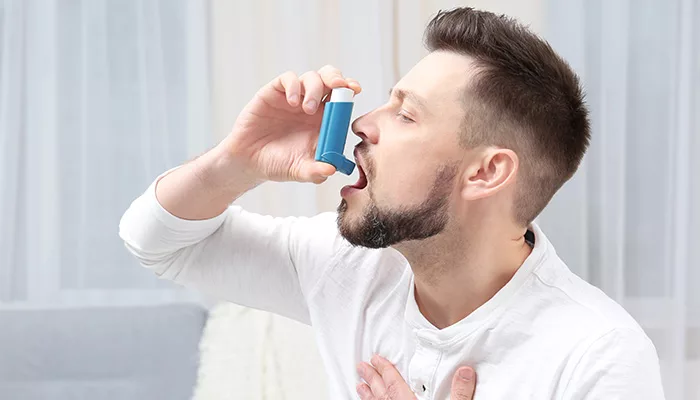Don’t Let your Asthma trigger this monsoon
August 20, 2019
The cool breeze and the ever-pleasant weather that accompanies the monsoon season are the delights we eagerly wait for. They are our respite from the sultry heat of summers. But the dip in the temperature and humidity do prove to be a bit of a worry for people with asthma. As you already may be knowing, asthma is a chronic respiratory disorder that damages the airways in our lungs and hence, causes great difficulty in breathing. It is surprisingly common but manageable as well. However, you may need to take extra care during the monsoon season.
Asthma and monsoon
Cold environments, such as the cool breeze of the monsoon are known to induce asthma attacks. Such attacks are especially hard on senior citizens. There are a few causes of asthma getting worse in the rain. The constant dampness, for starters, creates a lot of fungus around you – that you may not even notice. It also increases the pollen content in our environment. Both of these have a tendency to cause asthma attacks. Monsoon also brings about a lot of toxic gases like sulphur and nitrogen dioxide. While normal respiratory systems may not react to them, a person with asthma is likely to. Moreover, bacteria and viruses are rampant during this season – once again making life difficult for an asthma patient.
How to protect from Asthma
Start by inspecting your walls. If you see any damp sections – as is common in the rainy season – get it fixed immediately. You can do it yourself with bleach and water but we recommend taking professional help on this one. Making your home anti-moisture (yes, that’s a thing!) is important. If you do not do something about the damp patches, they will develop into moulds that will actively worsen your condition. Speaking of moisture-locking your place, a simple thing that does the trick is keeping the doors on the bathrooms and kitchen closed. This keeps the moisture from entering the other rooms. Now, this is a bit of a problem in a modern-setting household with open kitchens. In that case, try to keep it as dry as possible.
- Ventilation and exposing the rooms to sunlight is also important – both crucial in discouraging the growth of bacteria in your home. If you have any indoor plants, it’s time to keep them outside – if only for the monsoon months. If the plants are the kinds that won’t survive outside, get them out of your bedroom at least.
- The presence of pollen in the air is at its highest during the morning. Even the pollution from the vehicles lingers in the air for longer than usual. So, you need to watch how and when you step outside your home. Avoid leaving the house in the morning entirely if possible. Wear a mask if you must. If you have a pet, keep it at a safer distance – from children especially.
- We advise you to seek your doctor in case you need additional advice on keeping yourself safe in the monsoon. While these tips work great in securing yourself and your home, there are no substitutes to regular medication and a healthy diet. Keep exercising and practising yoga and do not hesitate to consult a doctor if you ever feel the need.
NOTICE BOARD
CONTACT US
CONTACT US
 Book Appointment
Book Appointment


.svg)
.svg)
.svg)
.svg)








